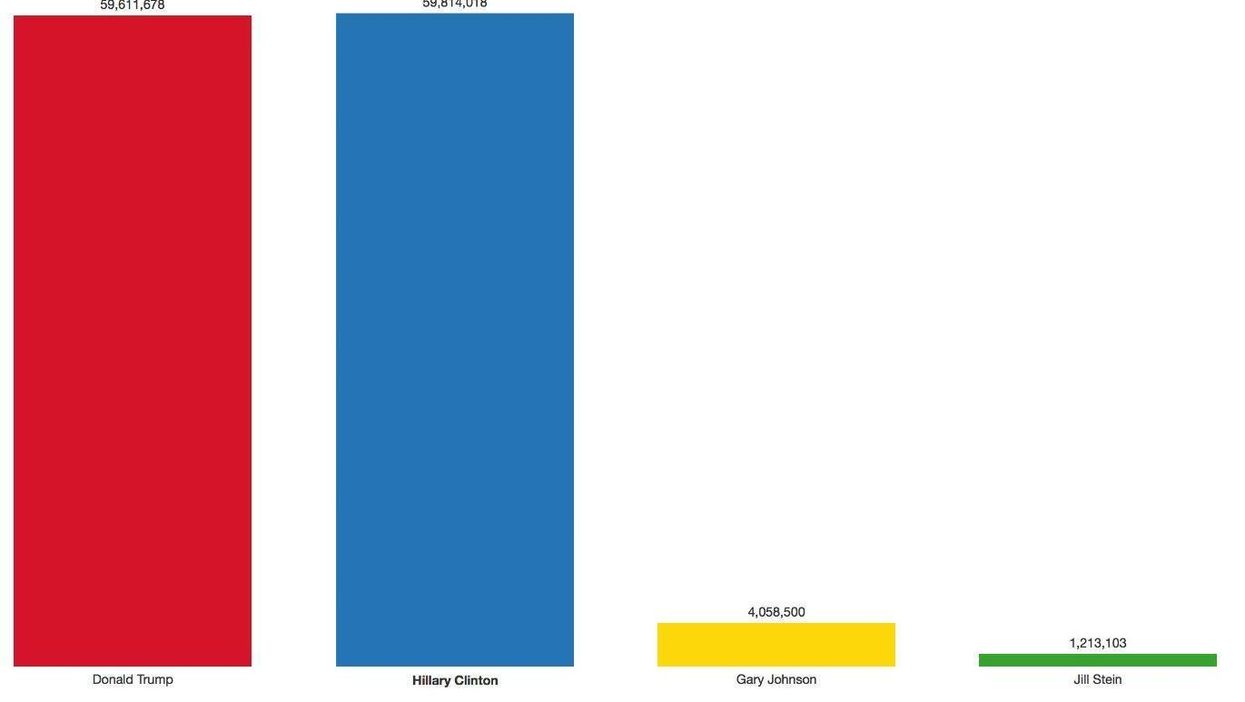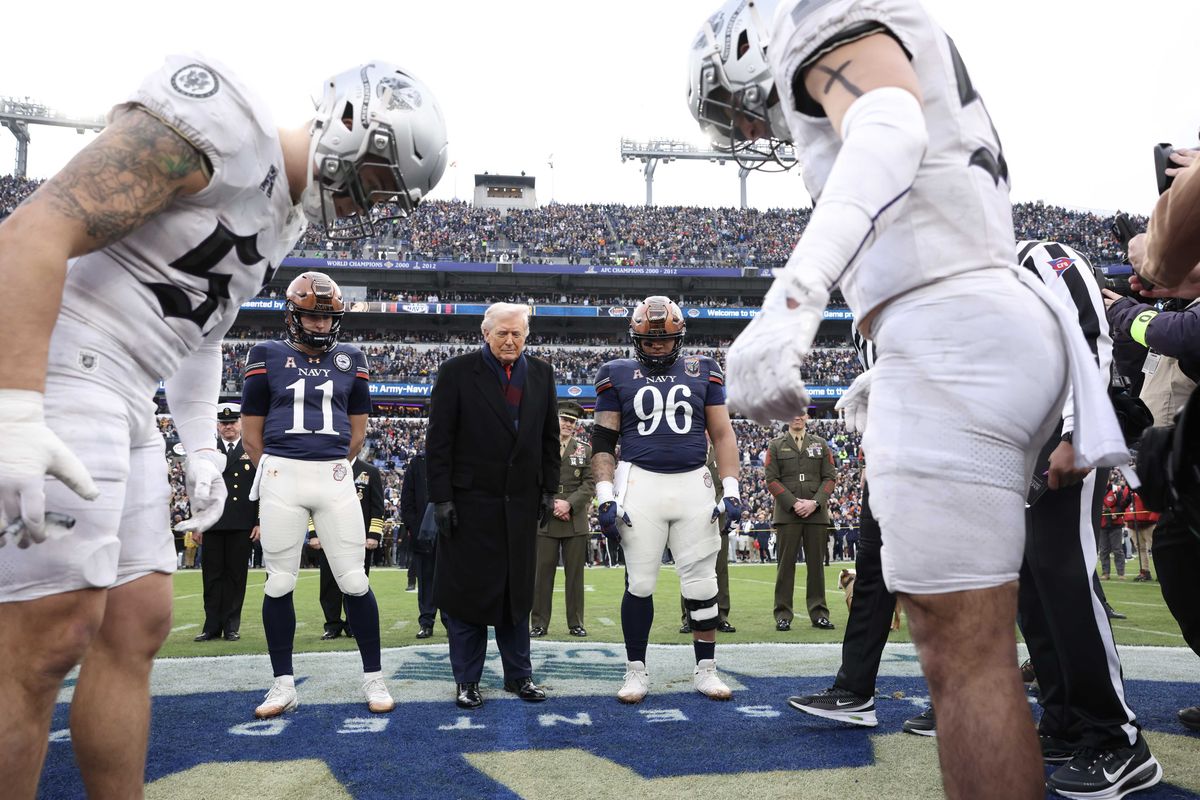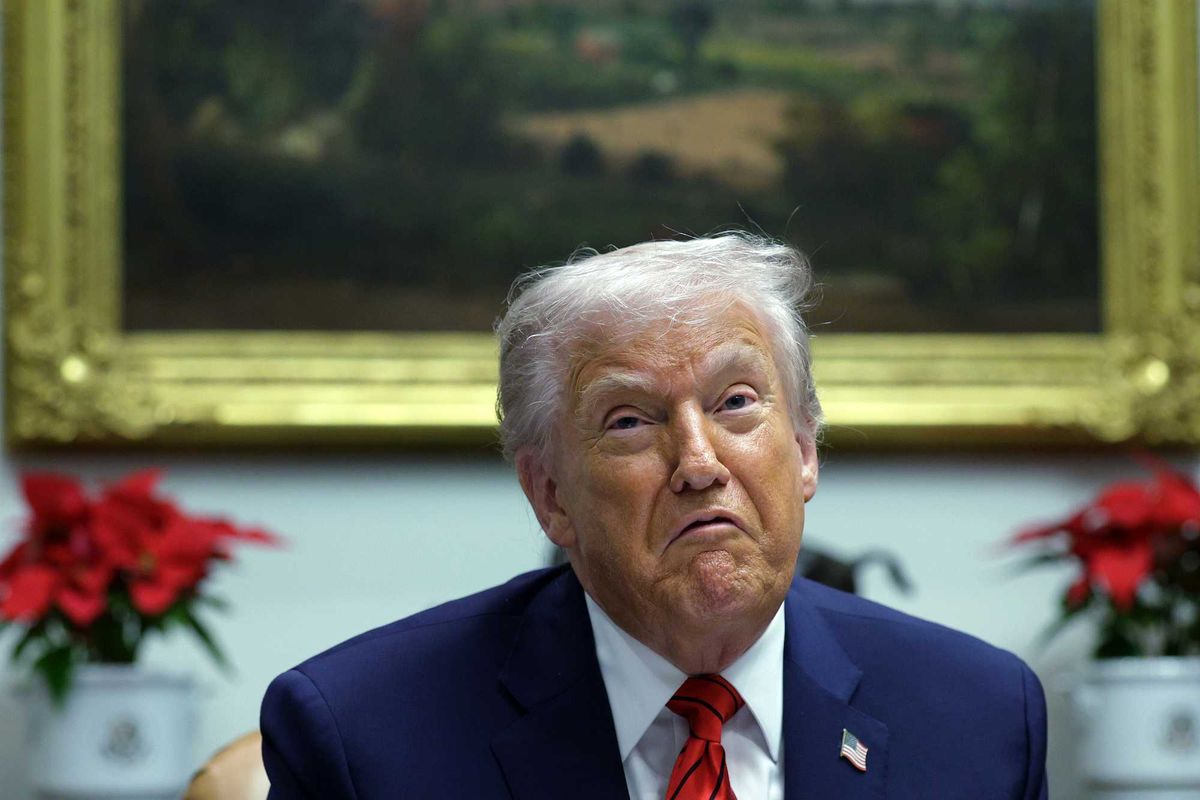News
Joe Vesey-Byrne
Nov 10, 2016

The final results of last year's election showed that once again America's system for electing a leader works, if your intention is to avoid a democratically elected leader.
When creating the electoral college system, the founding fathers were intentionally seeking to keep power out of the hands of the masses, and prevent the 'tyranny of the majority' from forcing a presidential candidate from one of the more populated northern states against the will of the larger but less-populated southern states. Despite being weighted by population of states, the electoral college still gives undue and disproportionate heft to more sparsely populated states.
As these three bar charts show, the system worked as intended exactly one year ago, blocking the will of 48 percent in favour of the 47 per cent.
In the 18th century 'democracy' was a dirty word and calling someone a democrat was a slander.
The term was used by politicians to mean mob rule, and uncontrolled populism. The hot headedness of the people had to be cooled, through an electoral college which would choose the president.
It was equally desirable, that the immediate election should be made by men most capable of analyzing the qualities adapted to the station, and acting under circumstances favorable to deliberation, and to a judicious combination of all the reasons and inducements which were proper to govern their choice. A small number of persons, selected by their fellow-citizens from the general mass, will be most likely to possess the information and discernment requisite to such complicated investigations.
- Alexander Hamilton, The Federalist Papers no. 68, 1788
The electoral college has protected against the majority of voters, yet it did not prevented a populist, angry, wave of people from choosing the president.
Nice one, Alexander Hamilton.
It isn't the first time in modern US history that a President lost the popular vote, but won the election.
The elections of 2000, 1888, and 1876 all included instances when the candidate who won the popular vote lost the election. The 1824 election also saw John Quincy Adams win the presidency with fewer votes than his opponent Andrew Jackson but Adams was awarded the office by the House of Representatives rather than the electoral college. Moreover the 'popular vote' did not include those of several states whose electors were not chosen by the voters.
Oddly enough, the Democrats have frequently lost the presidential election in this way, living up to the old meaning of their name.
Many Democrats and liberals pointed out at the time that if the shoe was on the other foot, how different the last year would have been.
Others pointed out how some on the liberal side have changed their tunes.
Including one particular individual in 2012.
Yet the system for electing a president is endorsed by the people, in that it could be changed by constitutional amendment, and they have not elected candidates for the House or the Senate who have brought about that change.
The new president governs with the consent of the people, but not as 'the American people's choice'.
More: Michael Moore's terrifying quote that predicted Donald Trump's election
More: Remembering all the times Donald Trump said this election was 'rigged'
Top 100
The Conversation (0)













